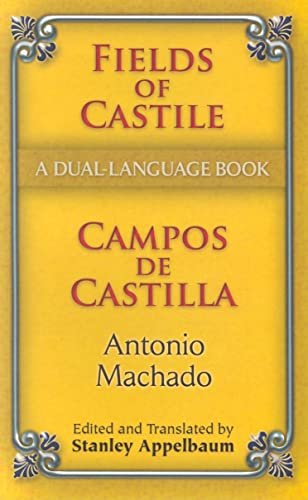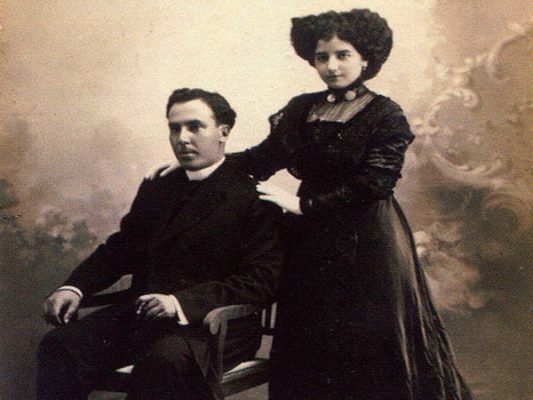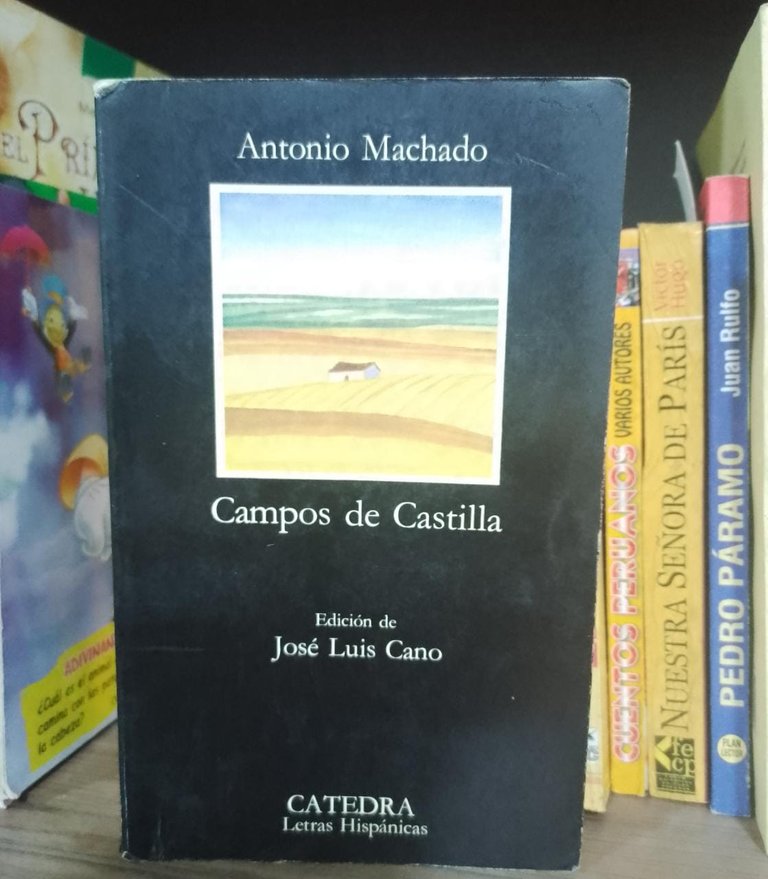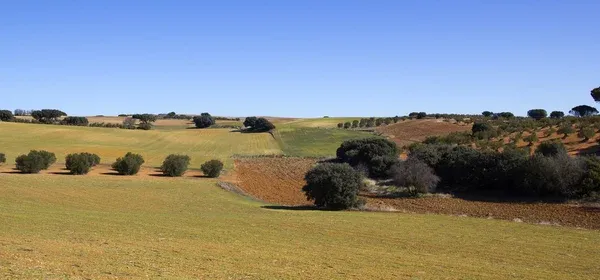Fields of Castile: the nature of the human landscape

Fields of Castile is one of the most outstanding works of the Spanish poet Antonio Machado, first published in 1912. In this book, Machado explores the beauty of nature, Spanish identity and the complexity of the human condition. Fields of Castile was the book that, in a way, made Machado desist from the idea of suicide, since the success of the book motivated him to overcome the recent death of his wife Leonor. And, as he himself says in a letter to his friend, the poet Juan Ramón Jiménez, it was not out of vanity (his fame as a humble and simple man is well known) but because he thought that if there was something useful in it, he would not have the right to eliminate it.
The poems of Fields of Castile are impregnated with a nostalgic and melancholic feeling, which reflects the author's personal situation. They portray life in the Castilian countryside, where the rugged and desolate landscape becomes a metaphor for loneliness and existential emptiness.
However, Machado also celebrates the cultural richness and history of Spain, with poems that make reference to historical figures and emblematic places of the country. In some of the most moving poems in the book, Machado reflects on his own identity and his relationship with Spain.

Machado's writing is very careful and poetic, with a clear and simple language that contrasts with the depth and complexity of the themes he addresses. His style is very introspective and lyrical, and his poetry is full of powerful and evocative images that create a unique atmosphere.
In short, Fields of Castile is an impressive work of poetry that combines personal introspection with an exploration of Spanish culture and history. Machado's poems are poignant and thoughtful, and his poetic writing is elegant and subtle. This book is a masterpiece of Spanish poetry, and one of Antonio Machado's greatest literary achievements.
THANKS FOR READING
Campos de Castilla: la naturaleza del paisaje humano

Campos de Castilla es una de las obras más destacadas del poeta español Antonio Machado, publicada por primera vez en 1912. En este libro, Machado explora la belleza de la naturaleza, la identidad española y la complejidad de la condición humana. Campos de Castilla fue el libro que, de algún modo, hizo desistir a Machado de la idea del suicidio, ya que el éxito del libro le motivó a superar la reciente muerte de su esposa Leonor. Y, como él mismo dice en carta a su amigo, el poeta Juan Ramón Jiménez, no fue por vanidad (muy conocida es su fama de hombre humilde y sencillo) sino porque pensó que si había en él una utilidad, no tendría derecho a eliminarla.
Los poemas de Campos de Castilla están impregnados de un sentimiento nostálgico y melancólico, que refleja la situación personal del autor. En ellos, se retrata la vida en los campos castellanos, donde el paisaje agreste y desolado se convierte en una metáfora de la soledad y el vacío existencial.
Sin embargo, Machado también celebra la riqueza cultural y la historia de España, con poemas que hacen referencia a personajes históricos y a lugares emblemáticos del país. En algunos de los poemas más emotivos del libro, Machado reflexiona sobre su propia identidad y su relación con España.

La escritura de Machado es muy cuidadosa y poética, con un lenguaje claro y sencillo que contrasta con la profundidad y la complejidad de los temas que aborda. Su estilo es muy introspectivo y lírico, y su poesía está llena de imágenes poderosas y evocadoras que crean una atmósfera única.
En resumen, Campos de Castilla es una obra poética impresionante que combina la introspección personal con la exploración de la cultura y la historia españolas. Los poemas de Machado son conmovedores y reflexivos, y su escritura poética es elegante y sutil. Este libro es una obra maestra de la poesía española, y uno de los grandes logros literarios de Antonio Machado.
Wow, such high praises. I'm intrigued, particularly with the idea of fusing poetry and history. Sounds near perfect
Hi @stevenson7, sorry for the lateness of my reply. Yes indeed, the combination of history and poetry is a fascinating subject. And Machado's book is a good example of that combination. In fact, when we study a bit of Spanish history, in particular that which corresponds to the one between the end of the 19th and the beginning of the 20th century, we turn, among others, to Machado's texts. They speak, with clarity, of decadence and, at the same time, of the need to reorient convictions and actions in order to rise again from failure; what Spain had particularly experienced at that time, but which is a theme not specific or unique to one country, which is why we can take it, also, to other contexts. A pleasure to read your comment. Best regards.
Se ve muy interesante este libro, lo voy a buscar para leerlo 👍
Me contenta que te haya motivado, @andreamtovar19. Es un libro fascinante, de los más completo si hablamos de poesía, sobre todo con estética contemporánea. Saludos.